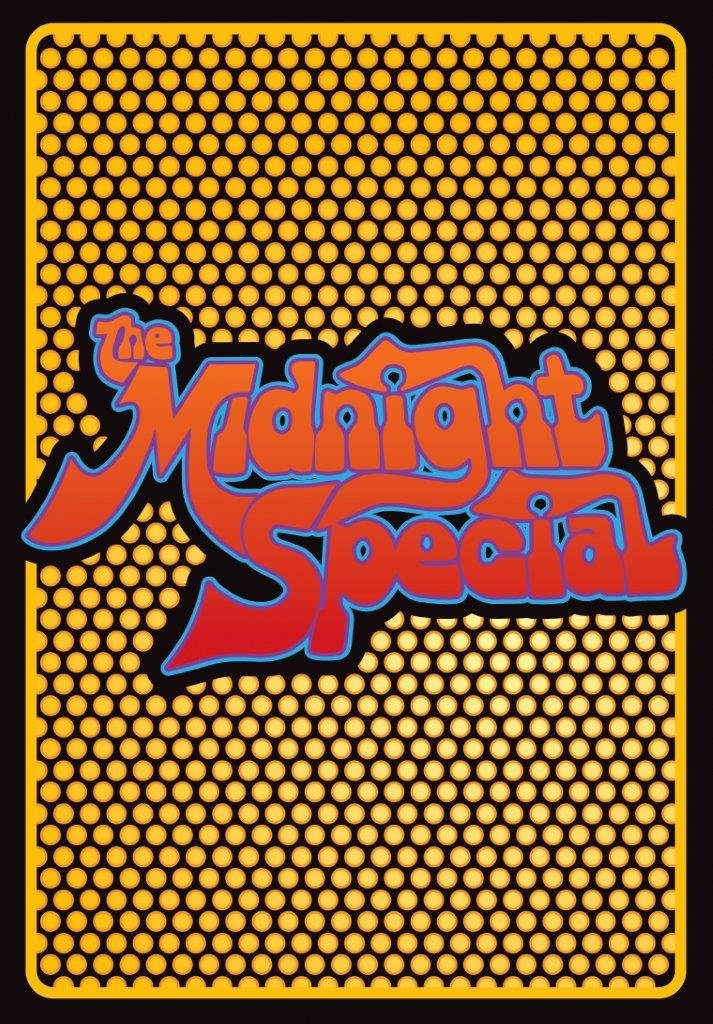
Written by S. Edward Sousa
Ask me about the 1970s and two images come to mind: Joey Ramone’s jean clad crotch and Alisha “I Love the Nightlife” Bridges proto-punk disco haircut. One’s the soulful height of youth and young manhood while the other’s a glittering image of midlife femininity as it works the dance floor. Yet despite the skin-tight Levi’s versus bell bottom retrospective culture war we’re often treated to, these images are plastered on the same pole at the same of end of the spectrum, for the Seventies were a bleak and miserable decade. A chasm often existed between pop culture’s escapist tendencies and the decade’s grim realities. Watergate, unemployment, hostages, a botched war, the decaying dreams of the radical 1960s—it’s no wonder by mid-decade people reverted to the 1950s for diversion. Locked inside of Grease or American Graffiti or Sha-Na-Na, and especially The Midnight Special, is the hope that in some alternative reality the previous decade’s promises materialized and made us simpler.
Out now in three forms—an 11-disc CD/DVD box set, six-disc DVD collection, and a single-disc best-of DVD—The Midnight Special, the famed 1970’s music revue punched up with comedy and kitsch, aired 450 episodes on NBC between 1973 to 1981. It was the Friday night follow-up to The Tonight Show with Johnny Carson, packing a 90-minute time slot with the era’s biggest names in rock, pop. and disco. Unlike its predecessors or competitors, The Midnight Special was rare to rely on pre-taped or lip-synched footage—only present in the final season—but instead filmed the vast majority of performances live on a Burbank soundstage in front of a studio audience. Week after week they corralled together a cadre of artists across an array of genres for the sheer purpose of entertainment, for the sheer purpose of alleviating the decade’s intensities.
From Chaka Khan to Barry White to Aerosmith, The Midnight Special boxset—presented by TimeLife and Star Vista Entertainment—culls together the finest popular performances from the show’s run. John Denver and Cass Eliot turn in a soft and subtle ‘Leaving on a Jet Plane’ from the pilot episode, which also featured Argent and Harry Chapin. Episode #152 from 1976 finds LaBelle, ELO, Janis Ian, and Minnie Riperton working the same crowd from different angles, a variety indicative of the show’s tenure. Take episode #49 from 1974 which sees Charlie Rich follow Curtis Mayfield who followed Edgar Winter. Or better yet, take Episode #251 from 1978 where the O’Jays preceded Billy Preston who preceded Sammy Hagar. In lies the genius of the box set’s organization. Rather than organizing a couple of best-of discs or dividing performances by genre, the show’s best episodes are edited down to their live performances illuminating the sheer mixture of not only the show, but the decade as well.
Yet something heavier appears to have fallen to the floor in the editing room, something more reflective and more insightful of the context out of which The Midnight Special emerged. Cut are the performances by Richard Pryor, George Carlin, Andy Kaufman, and the slew of comedians who slay audiences with irreverent and absurdist humor, if comedy is a cultural pressure valve its absence is felt in illustrating the realities of the 1970s. Gone is the kitsch—see Alice Cooper with his mouth taped shut—and conversations save for the few seconds of between song banter or interviews slung into the extras bin. It’s an oblique gape in the show’s larger spectrum. Even the antics of announcer Wolfman Jack, a man’s who legend is founded on rock n’ roll energy and excitement, are notably missing from this collection. Instead the sets comes with a slew of contextual extras—a Wolfman retrospective, a documentary on Helen Reddy (who served as the show’s only permanent host from 1974-76) and longform present-day interviews with Alice Cooper, Peter Frampton, Loggins & Messina, and others. These often flat extras are filled with conjecture and niceties rather than insight and anecdotes, leaving the viewer hungry for more.
The box set however captures a glimpse of history, and not just of music history, but of life in America in the 1970s—illuminating how we’ve changed and what we demand of our entertainers. From disc to disc, there are a plethora of kimonos draped upon the bodies of rail-thin perhaps even coke-addled rock and rollers, most wonderfully on REO Speedwagon’s Kevin Cronin. There’s the notion that someone like Helen Reddy is sexy, not to say she isn’t, but by today’s standards pop-star standards—see Katy Perry—she’s more normal than anything.
Perhaps greatest of all is the revelation that Hollies’ front man Allan Clarke exudes any of the qualities of a front man, including and perhaps most notably an ounce of swagger. He’s no Mick or Plant, and arguably not even a Leslie West. This guy looks like a friend of my dad’s, and the Hollies play to the most half-hearted audience in the collection. At one point a bearded goon walks to the stage as though he just sauntered into a pub and a band happened to be playing. He looks bruised by the world outside and a bit thirsty for reprieve. And it’s beautiful, these revelations, as beautiful as Alicia Bridges’ haircut and Joey Ramone’s crotch, because it reminds us of the function of pop culture in hard times, to alleviate the anxiety. The people of the ‘70s were hungry for entertainment, not illusion or distraction, but a sympathetic escape from the realities of life in America.